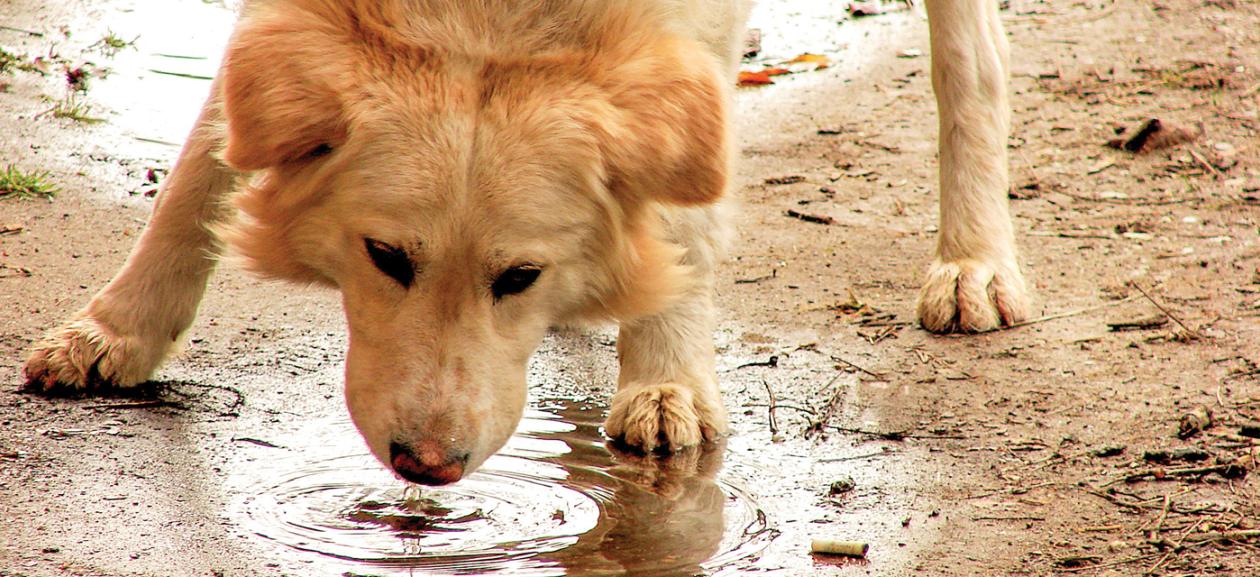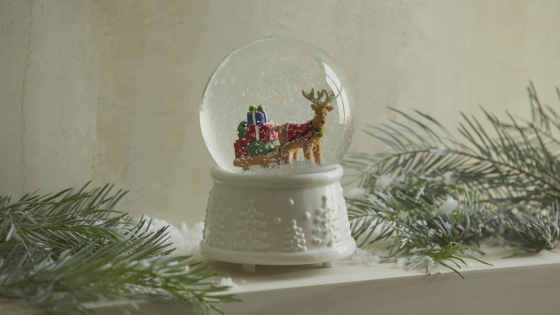
Flooding and Standing Water Dangers for Pets – Hazards, Tips and Symptoms
It’s that time of year when rain is the rule rather than the exception. With downpours frequently drenching our streets and backyards, the chances of encountering dirty puddles increases. And so do the hazards pets can face.
“Dirty standing water can carry potentially toxic chemicals from runoff or harmful bacteria and parasites than can make your pets very sick,” says DoveLewis Veterinarian and Critical Care Specialist Dr. Ladan Mohammad-Zadeh. “It’s important to be extra vigilant and attentive during heavy weather spells.”
While simply being in cold or deep water can be dangerous for pets, here are some additional hazards and tips to be mindful of in keeping your furry loved ones healthy during the rainy months this winter.
Hazards:
- Leptospirosis is a condition (caused by Leptospira bacteria) which can be serious and most commonly affects dogs – cat cases are rare with milder symptoms. It can be caught from water in rivers, lakes, or streams, or standing water containing urine from other animals or wildlife. It thrives in wet, moist areas. Be aware that Leptospira has the ability to spread from animals to humans.
- Giardia is a microscopic protozoan parasite that comes from water contaminated by feces. Giardia can be contracted from untreated sewage water, or natural ponds soiled by wildlife. The parasite persists in cool, moist climates. It is one of the most common parasites infecting dogs, cats and birds.
- Standing water can potentially carry toxins that can make pets ill. Motor oil, lawn chemicals, and winter chemicals such as anti-freeze may cause illness if ingested, and are more likely to spread with increased rainfall and runoff.
Prevention Tips:
- Consider getting your dog vaccinated against leptospirosis. Shots are good for one year. The vaccine is highly effective against four subtypes of the bacteria, though there are at least 10 documented types.
- Keep pets hydrated by offering them plenty of water and bringing water with you on outings. This will discourage them from straying to drink from outside water sources.
- Keep pets out of cold, deep or potentially contaminated waters – especially ones like the prevalent standing water we are seeing around the region right now.
- Get regular exams. All dogs are recommended to have at least one or two fecal samples done every year as part of their wellness exam to screen for parasites like giardia.
Symptoms to watch for:
- Leptospirosis symptoms include fever, shivering, muscle tenderness, reluctance to move, increased thirst, changes in urination, dehydration, vomiting, diarrhea, loss of appetite, lethargy and painful inflammation within the eyes. Other signs may include bleeding disorders leading to blood-tinged vomit, urine, stool or saliva as well as nosebleeds.
- Giardia symptoms include diarrhea, vomiting, weight loss and lethargy.
- Toxin ingestion symptoms can range depending on what has been ingested. Here are some general toxin ingestion symptoms to watch for: lack of energy, vomiting, infection, diarrhea, lack of appetite and abdominal pain.
If you pet is showing symptoms, seek veterinary care immediately. Early treatment is especially important with cases of leptospirosis where the bacteria can cause permanent organ damage. DoveLewis Emergency Animal Hospital is open 24/7 to help you through any pet emergency you may face. If you are unsure if your pet is having an emergency, call DoveLewis at 503.228.7281.
Recent Posts
Holiday Hazards for Your Pet
Deck the halls with boughs of holly … but be sure it’s out of reach of your furry friends! It’s easy to get swept up in the festivities of the season, but don’t forget that added fun means added risks for your pets.
Top Winter Care Tips for Your Pets
When you normally think of weather safety with your pets, you may naturally think of leaving animals in hot cars during summer. But did you know that cold weather also poses a serious threat to your animal's wellbeing?



